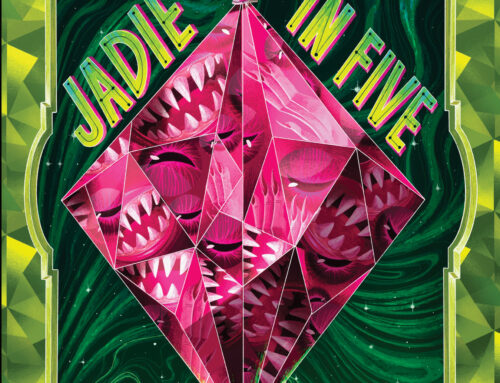Middle Grade Mafia: For those who haven’t yet read The Eighth Day, please tell us a little about the series and how you came up with the idea.
In The Eighth Day, 13-year-old Jax Aubrey discovers a secret day of the week squeezed in between Wednesday and Thursday and a teenage girl living in the house next door who exists only on that hidden day. The idea came from a family joke. Whenever my daughters asked my husband when they could do something (go ice skating, go to the beach) and he didn’t have a ready answer, he’d tell them, “We’ll do it on Grunsday.” Eventually I started wondering what it would be like if there really was a Grunsday in the week, but not everybody was aware of it.
That was the original premise. The idea that this secret day would be rooted in Arthurian legends and the notion to include modern day vassals and liege lords in the story came later as I developed a plot to go with the premise.
MGM: I was hooked on The Eighth Day from the first page. How and why did you choose Jax as your protagonist?
Thank you! Like all my protagonists, Jax came to me after I conceived the premise for the story. Probably only other writers will understand this, but I don’t have a lot of control over the gender or name of my main character. They just show up and claim the job. (In a recent WIP, a girl showed up for a story where I was expecting a boy MC.)
I knew right from the start that Jax would be newly orphaned and living with a lax and negligent 18-year-old guardian. He would experience the secret day of the week by himself the first time and be totally freaked out by the empty-seeming world. The second time it happened, he’d discover his reluctant guardian also experiences this secret day.
However, Jax’s personality developed over many successive revisions. The final (and correct) version of Jax Aubrey is very different from the boy in the first draft.
MGM: When you were plotting the first book, did you map out the story arc for the entire trilogy or did each come after you completed the one before?
I’m not a very good plotter or outliner. I usually have a beginning, an ending, and a few intermediary events in my mind when I start writing. Getting from point to point is the adventure! So no, I did not have a series arc in mind when I wrote The Eighth Day. I had no idea if the story would sell at all, let alone in a multi-book deal.
When it did sell, it was in a 3-book deal with an option for 2 more books. I was instructed by my editor to plan a 5-book story arc that could end on the 3rd book if necessary. Very tricky! Book 3 had to serve as a satisfying ending – or the mid-point in the series!
At that point, I brainstormed premises for Books 2 to 5. I only planned out the plots when I came to each book – and by that, I mean I thought up a beginning, an ending, a few intermediary events in between, then plunged in to discover the story organically.
MGM: I love hearing about the path authors took to get their first book deal. What was yours?
I self-published a book titled High Spirits in 2007– before the popularity of e-books and the rise of the indie author. In 2009, I was offered – almost simultaneously – a film option for the book and a book contract with Sourcebooks. I accepted both. In 2010, the book was re-published under the title We Hear the Dead, and in 2013 a 7-minute short film called The Spirit Game went to the Cannes Film Festival. (Currently, the film is being used to pitch the idea for a television series in Hollywood and also to Canadian companies. It’s available to watch on YouTube. https://www.youtube.com/watch?v=YV4N_C87rFs)
Also in 2010 I started to look for an agent by querying a new project, and ended up signing with Sara Crowe right before Christmas. So I did everything backwards: 1) published a book, 2) got a book contract, and 3) signed with an agent.
MGM: Can you share a bit about your writing discipline? Do you write every day, have a word count goal, etc?
I’ve found that trying to force myself to write at a specific time or count the words I produce each day is counter-productive. It demoralizes and de-motivates me. The fact is, I usually do write every day, but it might not be on my WIP. It might be blog posts or promotional things like proposals to speak at conferences. Because of the way I write first drafts – dot-to-dot – it sometimes takes me time to figure out how to get from one part of the story to the next. Forcing it doesn’t help. So, I might play with a different project while I wait for inspiration to strike, or sometimes I need to put writing aside and read, watch TV, clean the house (eek), etc. Of course, writing under a deadline means I eventually must corral that Muse and put her to work, but so far I have never missed a deadline – even a very tight one.
MGM: Any advice for writers who are not yet published?
Don’t put all your eggs in one basket. Work on more than one manuscript; try different genres and target audiences. Take risks, and don’t let anyone tell you what you can’t do. In 2007, it was against standard advice to self-publish, but I did it anyway and it opened a lot of doors for me.
MGM: I know you’re busy with your release. Thanks for taking the time to share with us!
Thank YOU for hosting me here at Middle Grade Mafia!
The Inquisitor’s Mark, the 2nd book in the series is available now. To learn more about Dianne Salerni and her upcoming books, be sure and check out her Website and follow her on Twitter.








Thank you so much for hosting me here at Middle Grade Mafia! This was a fun interview. Thanks for celebrating my release day with me!
The pleasure is ours. You are welcome back anytime!